The last decades of the 19th Century saw the United Kingdom move into the area with the explorer David Livingstone establishing the trading Livingstonia Central African Mission Company in 1878 and by 1891 Britain had proclaimed modern day Malawi as the Nyasaland and District Protectorate; a name that only survived for two years before changing again to the British Central African Protectorate (above), and lastly Nyasaland in 1907. British rule was marred by revolts, one of the most aggressive occurring in 1915. However, as across Africa, the Second World War proved an impetus for nationalist sentiment to coalesce into meaningful action with the Nyasaland African Congress being established in 1944. Despite this, the British ignored local sentiment and in 1953 combined Nyasaland with what is now Zambia and Zimbabwe into a single federation of Rhodesia and Nyasaland; a move strongly denounced by academic Dr Hastings Kamuzu Banda who headed home from studying abroad to take up the mantle of leading the Nyasaland African Congress.
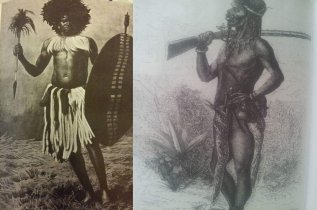 Subsequent violent clashes led to a state of emergency being declared, Banda arrested and the Congress outlawed. Despite this, the movement for reform was sweeping across Africa. As such Banda (below) was invited the following year for talks in London to explore constitutional reform which led to elections for a new legislative assembly the following year, an election which saw the Malawi Congress Party, the successor to the Nyasaland African Congress, triumph with 94% of the vote. This result paved the way for Nyasaland being granted self-government with Banda as prime minister in 1963. What happened next, was oh so typical for a nation that had struggled to free itself from what was seen as oppressive foreign rule. Whilst independence was achieved on 6th July 1964 with Nyasaland becoming the Republic of Malawi with Banda as its president, Banda established a one-party state with all opposition movements denounced and their leaders detained. In 1971 Banda had himself elected president for life and secured his position in power by regularly moving his ministers so that none could emerge as a political rival.
Subsequent violent clashes led to a state of emergency being declared, Banda arrested and the Congress outlawed. Despite this, the movement for reform was sweeping across Africa. As such Banda (below) was invited the following year for talks in London to explore constitutional reform which led to elections for a new legislative assembly the following year, an election which saw the Malawi Congress Party, the successor to the Nyasaland African Congress, triumph with 94% of the vote. This result paved the way for Nyasaland being granted self-government with Banda as prime minister in 1963. What happened next, was oh so typical for a nation that had struggled to free itself from what was seen as oppressive foreign rule. Whilst independence was achieved on 6th July 1964 with Nyasaland becoming the Republic of Malawi with Banda as its president, Banda established a one-party state with all opposition movements denounced and their leaders detained. In 1971 Banda had himself elected president for life and secured his position in power by regularly moving his ministers so that none could emerge as a political rival.
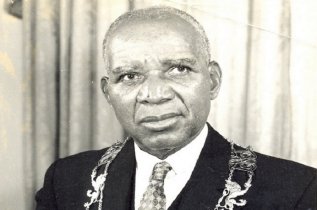 By 1992 unrest against Banda's rule was growing, and foreign donor countries began to suspend aid to Malawi in response to growing concerns about its human rights record. However by 1993 Banda himself was becoming seriously ill and in 1994 the first free democratic elections were held seeing Bakili Muluzi, the leader of the United Democratic Front, being elected as president with Banda retiring from public life, to die in 1997 from pneumonia in a South African hospital. Muluzi was succeeded by his hand picked successor, Bingu wa Mutharika, on 24th May 2004 who was to die in office of a heart attack on 5th April 2012 to be succeeded by the then vice-president Joyce Banda former minister of foreign affairs and womens' rights activist who had a strong commitment to education. Joyce Banda lost the presidency in the May 2014 election to Peter Mutharika, younger brother of former president and leader of the Democratic Progressive Party (DPP), Bingu wa Mutharika. He served in office until June 2020 and was succeeded by Lazarus Chakwera who won 59% of the vote in that year's election. By 1992 unrest against Banda's rule was growing, and foreign donor countries began to suspend aid to Malawi in response to growing concerns about its human rights record. However by 1993 Banda himself was becoming seriously ill and in 1994 the first free democratic elections were held seeing Bakili Muluzi, the leader of the United Democratic Front, being elected as president with Banda retiring from public life, to die in 1997 from pneumonia in a South African hospital. Muluzi was succeeded by his hand picked successor, Bingu wa Mutharika, on 24th May 2004 who was to die in office of a heart attack on 5th April 2012 to be succeeded by the then vice-president Joyce Banda former minister of foreign affairs and womens' rights activist who had a strong commitment to education. Joyce Banda lost the presidency in the May 2014 election to Peter Mutharika, younger brother of former president and leader of the Democratic Progressive Party (DPP), Bingu wa Mutharika. He served in office until June 2020 and was succeeded by Lazarus Chakwera who won 59% of the vote in that year's election.
|

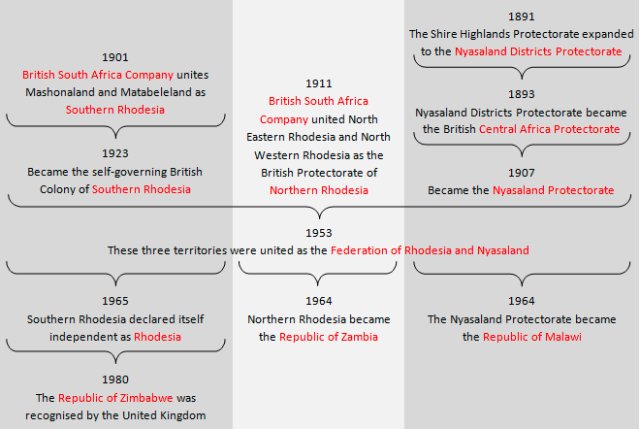
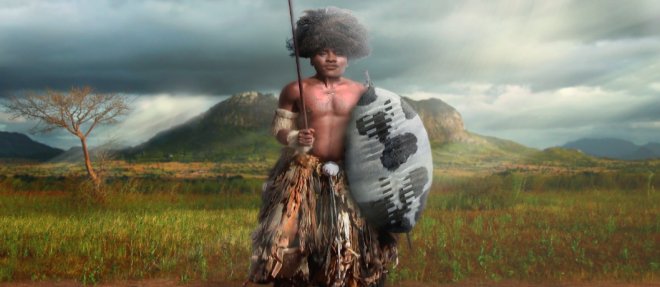
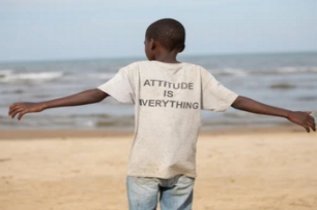


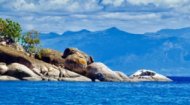
 Subsequent violent clashes led to a state of emergency being declared, Banda arrested and the Congress outlawed. Despite this, the movement for reform was sweeping across Africa. As such Banda (below) was invited the following year for talks in London to explore constitutional reform which led to elections for a new legislative assembly the following year, an election which saw the Malawi Congress Party, the successor to the Nyasaland African Congress, triumph with 94% of the vote. This result paved the way for Nyasaland being granted self-government with Banda as prime minister in 1963. What happened next, was oh so typical for a nation that had struggled to free itself from what was seen as oppressive foreign rule. Whilst independence was achieved on 6th July 1964 with Nyasaland becoming the Republic of Malawi with Banda as its president, Banda established a one-party state with all opposition movements denounced and their leaders detained. In 1971 Banda had himself elected president for life and secured his position in power by regularly moving his ministers so that none could emerge as a political rival.
Subsequent violent clashes led to a state of emergency being declared, Banda arrested and the Congress outlawed. Despite this, the movement for reform was sweeping across Africa. As such Banda (below) was invited the following year for talks in London to explore constitutional reform which led to elections for a new legislative assembly the following year, an election which saw the Malawi Congress Party, the successor to the Nyasaland African Congress, triumph with 94% of the vote. This result paved the way for Nyasaland being granted self-government with Banda as prime minister in 1963. What happened next, was oh so typical for a nation that had struggled to free itself from what was seen as oppressive foreign rule. Whilst independence was achieved on 6th July 1964 with Nyasaland becoming the Republic of Malawi with Banda as its president, Banda established a one-party state with all opposition movements denounced and their leaders detained. In 1971 Banda had himself elected president for life and secured his position in power by regularly moving his ministers so that none could emerge as a political rival. By 1992 unrest against Banda's rule was growing, and foreign donor countries began to suspend aid to Malawi in response to growing concerns about its human rights record. However by 1993 Banda himself was becoming seriously ill and in 1994 the first free democratic elections were held seeing Bakili Muluzi, the leader of the United Democratic Front, being elected as president with Banda retiring from public life, to die in 1997 from pneumonia in a South African hospital. Muluzi was succeeded by his hand picked successor, Bingu wa Mutharika, on 24th May 2004 who was to die in office of a heart attack on 5th April 2012 to be succeeded by the then vice-president Joyce Banda former minister of foreign affairs and womens' rights activist who had a strong commitment to education. Joyce Banda lost the presidency in the May 2014 election to Peter Mutharika, younger brother of former president and leader of the Democratic Progressive Party (DPP), Bingu wa Mutharika. He served in office until June 2020 and was succeeded by Lazarus Chakwera who won 59% of the vote in that year's election.
By 1992 unrest against Banda's rule was growing, and foreign donor countries began to suspend aid to Malawi in response to growing concerns about its human rights record. However by 1993 Banda himself was becoming seriously ill and in 1994 the first free democratic elections were held seeing Bakili Muluzi, the leader of the United Democratic Front, being elected as president with Banda retiring from public life, to die in 1997 from pneumonia in a South African hospital. Muluzi was succeeded by his hand picked successor, Bingu wa Mutharika, on 24th May 2004 who was to die in office of a heart attack on 5th April 2012 to be succeeded by the then vice-president Joyce Banda former minister of foreign affairs and womens' rights activist who had a strong commitment to education. Joyce Banda lost the presidency in the May 2014 election to Peter Mutharika, younger brother of former president and leader of the Democratic Progressive Party (DPP), Bingu wa Mutharika. He served in office until June 2020 and was succeeded by Lazarus Chakwera who won 59% of the vote in that year's election.


